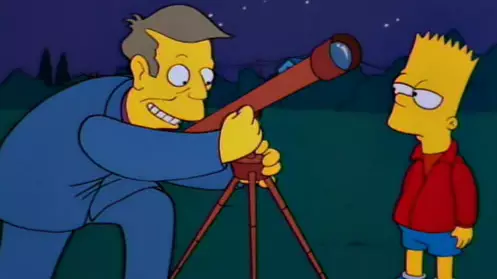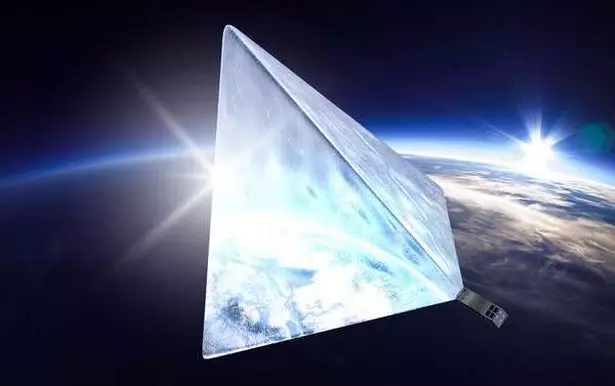
Russia is about to launch a new satellite that will become of the brightest stars in the sky and astronomers are seriously pissed off about the whole thing.
On July 14, the small satellite, called Mayak, will be launched after a $30,000 (£23,000) crowdfunding effort from the Moscow State Mechanical Engineering University.
Despite being small when it's launched, the satellite will unfurl a giant solar reflector once it's in orbit and that's when the trouble begins, because the pyramid-shaped reflector, which measures 16-metres squared, will bounce the sun's light back to Earth.

An artists impression of how the sateliite will look. (Credit: cosmomayak.ru)
Advert
That means it will appear to be the brightest star in the sky to onlookers. Sounds pretty cool.
Nick Howes, an astronomer and former deputy director of the Kielder Observatory in Northumberland, told IFLScience: "We fight so hard for dark skies in and around our planet.
Advert
"To see this being potentially ruined by some ridiculous crowdfunded nonsense makes my heart simply despair."
However, backers of the project reckon it will inspire younger people to get into space research. Alex Shaenko, the project leader, told the website that there are already plenty of spacecrafts flying through the night sky and that some are even brighter than Mayak.
On its webpage, the Mayak promises to 'be the brightest star in the night sky'. But it's not all about twinkle, twinkle, the mission is also being used to test how to brake satellites while in orbit and de-orbit them, IFLScience reports.
Advert
Other scientists have claimed the satellite won't be as bright as the creators reckon. I guess we'll just have to look to the skies in a couple of weeks and see for ourselves, eh?
Featured Image Credit: The Simpsons/Fox